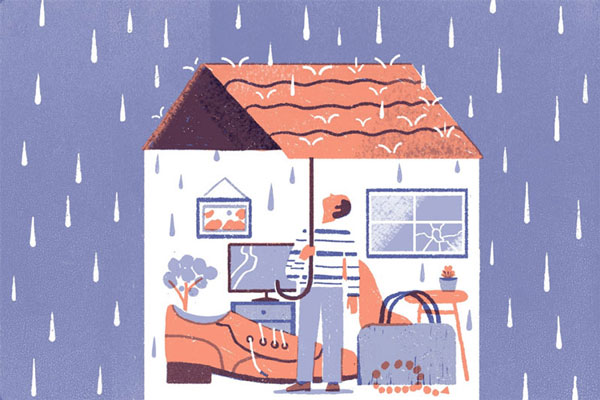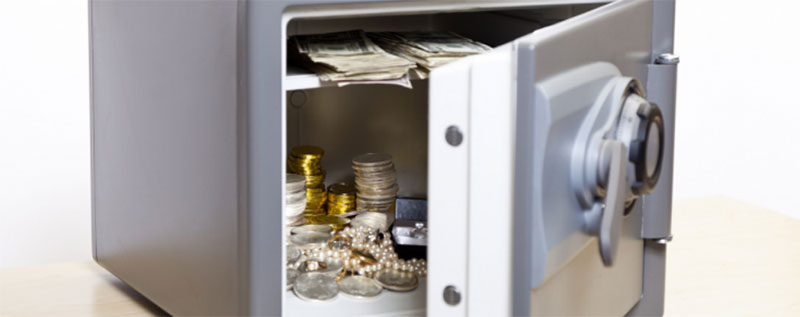
Special Limits in Home Insurance: Definition, Purpose, and Examples
Oct 13, 2023 By Susan Kelly
93% of Americans have home insurance in some respect, yet about 65% of the population is underinsured. Let's break down these figures. In every three homes in America, 2 of them are underinsured. This means that in the event of fire or theft, most Americans are disgruntled people feeling that they have been shortchanged and scammed by insurance companies.
Most people do not read through their insurance policy's 'Special Limits' section. Most of these people do not even know that such a provision exists.

What are Special Limits in Home Insurance?
Special limits are caps set by insurance companies to determine how much the insurer will pay the insured for certain items in the insured's house. Special limits specify the maximum payout the insured is guaranteed to get in the eventuality of loss or theft of special contents in their home.
Let's try to quantify what special limits entail. The best way to do this would be to outline the adjectives that most insurance companies will use to define how much they will pay as special limits. They include:
- Maximum payout
- Maximum payable limit
- Highest cap
- Highest dollar amount payable
- The most that can be paid for loss
- Guaranteed upper limit

It isn't easy to quantify the worth of these special items in a home, even if the insurance policy is tailored and customized. This challenge exists for both the insured and the insurer. For the insured, the insurance company may quantify lost special items at a lower price than their actual worth. For the insurer, they could end up paying more than they are supposed to as compensation.
To solve this dilemma, insurance companies develop a maximum payout system for special items in the insured home, called special limits.
A suitable example of special limits in action:
Keith lost his possessions at home in a fire, and he is sure there was $4,000 cash lying around the house that has now been charred. With or without evidence that the money actually existed, Keith is eligible to receive the special limits compensation his insurer will provide. His insurance company offers compensation of $1000 as a special limit.
Keith will be paid $1000 despite losing $4000 in the fire. This strategy works in two ways:
- The insurance company saves itself from paying out more money than it is supposed to. In fact, it will rarely pay out more money than was lost.
- Keith will at least get some form of reimbursement rather than losing all his money. Besides, what if his wife took the $4,000 and went on a shopping spree before the fire?
Either way, both parties end up solving the issue amicably. Insurance companies set special limits to be as average as possible, what the average individual can afford.
Why do we need special limits on home insurance?

First, and perhaps most important, special limits compensate for the loss of special items that would have otherwise been ignored in the general home insurance. Most insurance companies will provide home coverage policies that will not have the fine print of insuring jewelry or souvenirs.
Another reason is that special limits on home insurance reduce the amount of money spent on premiums for home insurance. It is a benefit for the common good. Not everyone owns a unique item in their home that requires these limits. Therefore, the cost of insurance will remain affordable for the general public.
Special limits need to be constantly updated to reflect changes in what we view as 'special.' Decades ago, no one would have thought technology could be considered sufficing to be under special limits. However, nowadays, with computers containing code that could change the world, insurance companies need to refresh their definition and bounds.
Endorsements and riders
Homeowner's insurance will not adequately cover for certain unique items at home, such as jewelry. If the policy does include coverage, it will most likely not be enough. A way to mitigate this is by including endorsements.
Endorsements either add or delete items from coverage. A homeowner's insurance may include riders that reflect these changes as additional premiums. You should evaluate your insurance policy to see whether you need endorsements for the new financial year.
Insurance companies allow for the issuance of endorsements at any time of the policy period, be it during the term, at the initial purchase time, or when renewing the policy. It is an amendment to the original insurance contract and is as legally binding.
Be careful while including endorsements in your existing homeowners' insurance policy. Riders and endorsements may not guarantee you the full coverage of your possessions. If you own a high-value home, insure it using a high-value policy.
Examples of Special Limits
- Animals, such as birds and fish.
- Golf carts and golfing equipment.
- Collectibles, memorabilia, and souvenirs.
- Money in all its physical forms, such as banknotes and, coins, smart cards.
- Jewelry, such as watches and wedding rings.

- Precious metals such as gold and silver.
- Trailers not used with watercraft.
- Title deeds, evidence of debt, manuscripts, personal journals, tickets, stamps, passports, securities, letters of credit, school-leaving certificates, and other essential documents.
- Kitchenware, such as silver-plated, gold, and platinum.
- Firearms.
- Technology devices include mobile phones, laptops, tablets, gaming devices, and other electronic devices.
- Collectibles, art collections, antiques, and fine arts.
- Auto spare parts.
- Renewable energy equipment.
- Business property in the insured's house.
- Bicycles.
- Garden equipment.
Closing Thoughts

Insurance can be a complicated topic for both insurance companies and insured individuals. It is rare to find an insurance company that provides unlimited home coverage. It would eliminate the problem of insuring items that may be otherwise underinsured in a standard home policy.
Special limits solve this problem. The best thing about special limits is that you can customize them using endorsements. While endorsements will mean higher premiums, they provide extra cushioning for your special items.
Select a special limits policy that reflects your special items' worth. Settling for less is akin to having no insurance at all.
-
 Business Sep 30, 2024
Business Sep 30, 2024Navigating Summer Challenges for Small Businesses
Explore strategies for small businesses to thrive during summer challenges and enhance financial planning.
-
 Know-how Oct 01, 2023
Know-how Oct 01, 2023Life Insurance for Young Adults: The Best Option
Ensuring your family's future is crucial, regardless of whether you've just purchased your first house or are beginning a family. You should acquire insurance coverage as soon as possible because it's the most cost-effective while you're young and healthy. However, finding the correct life insurance company may be a challenge.
-
 Investment May 09, 2024
Investment May 09, 2024Cigna Life Insurance Review 2024: Everything You Need to Know
Explore an in-depth review of Cigna Life Insurance, covering term, whole, and universal policies, customer service, and how to file a claim.
-
 Know-how Jan 09, 2024
Know-how Jan 09, 2024What Is a Public-Private Partnership?
Suppose you think of a public-private partnership as a long-term contract between an individual or organization and a government agency to provide some public asset or service. In that case, a PPP is likely to come to mind. It is based on the idea that public and private sectors each have distinct advantages over the other regarding particular duties.